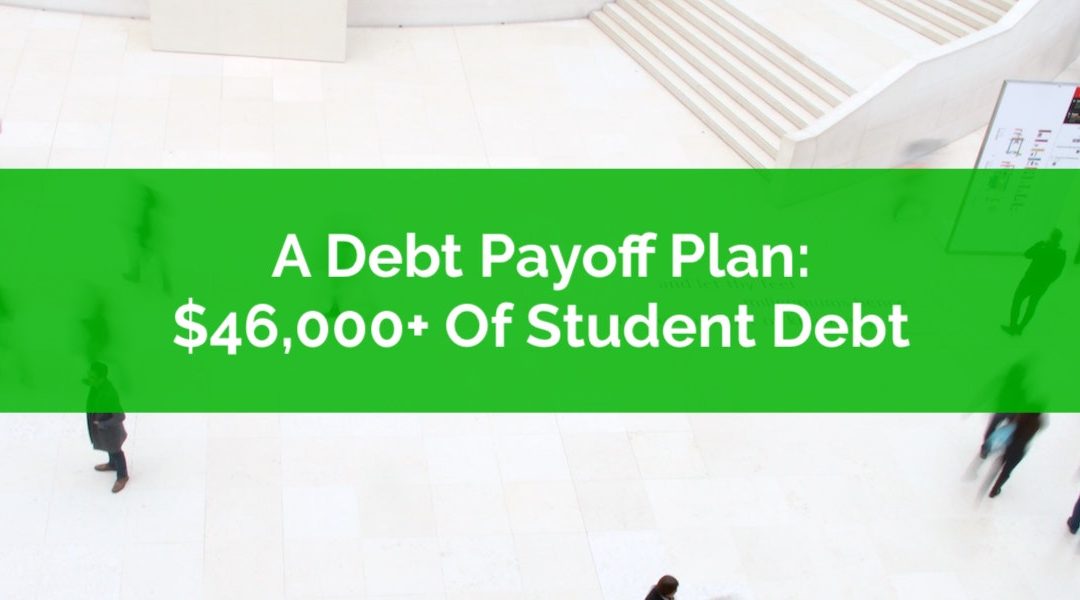
by Owen | Nov 9, 2020 | Budgeting, Buying A Home, Down Payment, Financial Goals, Financial Planning, Get Out Of Debt, Pay Off Mortgage, RESP/Kids Education
There’s a common misconception that financial planning isn’t necessary when you’re young. Young people are often told to go “read some books” about personal finance. Financial planning is traditionally thought of as something reserved for those with higher income, higher net worth, transitioning into retirement etc.
The fact is… this couldn’t be further from the truth.
One of the BEST times to build a financial plan is when you’re young, when you have lots of options, when you’re designing your life (both personally and financially), and when you’re making some BIG financial decisions that will impact you well into the future.
Some of the financial decisions you make while you’re young can haunt you for years or decades. Making the right decisions now can mean less stress and greater peace of mind in the future.
So why is there this misconception that financial planning isn’t for young people?
Most likely because financial planning in the past was focused on products, it was all about investments, insurance, new debt etc. Products that could be sold. Young people were often left out of the conversation because in general, young people don’t need products, they need advice.
Getting the right advice is so important when you’re young.
Even small decisions can have an enormous impact over time. It’s important to get the right advice early on, avoid common mistakes, and create the right systems and habits that will pay dividends for decades to come.
This advice should cover a few key areas that “traditional” financial advisors rarely cover.

by Owen | Nov 2, 2020 | Buying A Home, Down Payment, Financial Planning, Get Out Of Debt, Saving Money
It’s a challenging time for new graduates. The employment environment is difficult in many sectors/industries, plus the cost of rent and housing have outpaced inflation for years and years. It can feel very daunting to leave post-secondary when faced with mediocre job prospects and sky-high housing costs.
In some situations, the “bank of mom and dad” will step in and provide support. But, for the majority of families, that isn’t an option.
So how can parents help provide new grads a “leg up” in this challenging time?
More and more parents are inviting their adult children back home for 1-2 years after graduating to help them save money and pay off debt.
It may not be a cash gift, but it can provide nearly the same advantage.
Living at home to save money is a strategy that is on the rise. Parents are encouraging their children to take advantage of this opportunity and more and more adult children are doing it.
Living at home after graduation creates the opportunity to save $20,000, $30,000 or $40,000+ in one year, an opportunity that may never happen again.
Living at home for 1-2 years provides a huge head start for a new grad. This head start can be used to pay down student debt, build an emergency fund, start investing, buy a house etc. etc.
But it’s not all positive though. Living at home for a couple years also has risks. Without having a strategy in place it’s very easy to succumb to pitfalls like lifestyle inflation etc.
Here’s why parents should encourage their adult children to live at home for a couple years after graduation, and why new grads should seriously consider taking advantage.

by Owen | Sep 21, 2020 | Behavioral Finance, Get Out Of Debt, Pay Off Mortgage
In the world of personal finance, one of the best feelings is when you become debt free. Once you become debt free it’s like a weight has been lifted, you can breathe a sigh of relief, you’re free!
Creating a debt payoff plan is the fastest way to become debt free. It’s motivating. It’s provides a clear goal. It creates a clear payment plan to follow. But what makes a great debt payoff plan? There are a few important things that a great debt payoff plan should include.
Whether you’re paying off a bunch of credit card debt, or a big line of credit, or a student loan, or just want to see how long it will take to become mortgage free, a great debt payoff plan can make this happen.
What should be included in a great debt payoff plan? These six things are top of our list… (plus you’ll get a sneak peek at our new Debt Payoff Plan which is exclusively for clients to use when creating a financial plan with PlanEasy!)

by Owen | May 11, 2020 | Budgeting, Financial Planning, Get Out Of Debt, Government Programs
Having the option to defer mortgage payments has been a great source of relief for many Canadians. The large banks introduced options to defer up to 6-months of mortgage payments. But what is the cost of mortgage deferral and how does your mortgage change in the future?
The option to defer mortgage payments has been incredibly helpful for those with reduced income or cash flow. It’s provided an enormous amount of relief. It’s even allowed some people to build up a small amount of emergency savings (a personal finance best practice).
But what is the cost of these reduced payments? How will interest be accrued? What options do you have to reduce this accrued interest in the future?
In this post we’re going to use our free debt calculator to estimate the cost of mortgage deferral. We’re going to explore how the deferral impacts both short-term and long-term finances. Plus we’ll look at how different repayment options may impact the total amount of interest paid and the length of time to mortgage freedom.

by Owen | Dec 31, 2018 | Financial Goals, Get Out Of Debt, Retirement Planning, Saving Money
It’s the new year! Time to kick start your finances!
This ten day routine will help you shift your finances into high gear. This routine is aggressive, ambitious, and a bit challenging. This routine will cover all the basics of a good financial routine. Having a routine for your money is one of the best ways to improve your finances this year.
If ten days seems like too much (and it probably is!) then consider spreading these steps over ten weeks or even ten months to make things a bit easier. The key is to find a pace that works for you. It’s better to take a bit more time if it means you’ll stick to your new routine.
If it seems daunting then consider pairing up with a friend, co-worker, or getting the help of a financial coach. At PlanEasy we offer custom financial coaching & advice for our clients. As a new client, we’ll create a 12-month program tailored specifically to you and your goals. If you struggle with your financial routine then a bit of coaching & advice might be exactly what you need to improve your finances this year.

by Owen | Dec 3, 2018 | Get Out Of Debt
I love a good debt payoff story. There is something satisfying about seeing someone pay off a mountain of debt in a short period of time. This story comes from a reader who has a total of $46,174 in student and credit card debt. They used our debt payoff calculator to create a debt payoff plan that kills this mountain of debt in just over 2.5 years! Amazing!
When it comes to paying off debit it can sometimes feel like an endless struggle. It seems like interest is constantly work against you (which it is!). Payments are being made every month but the balance never goes down as fast as you hope.
This blog post isn’t quite a debt payoff story, not yet anyway. This post is about a debt payoff plan. Every debt payoff story starts with a good debt payoff plan. This plan aims to pay off almost $50,000 of debt in just over 2.5 years.
Let’s see how they’ll do it!






